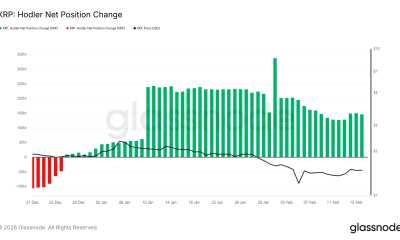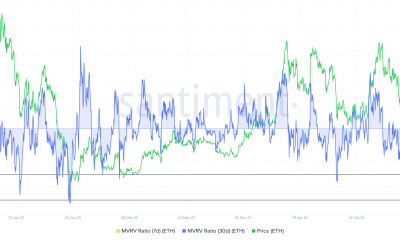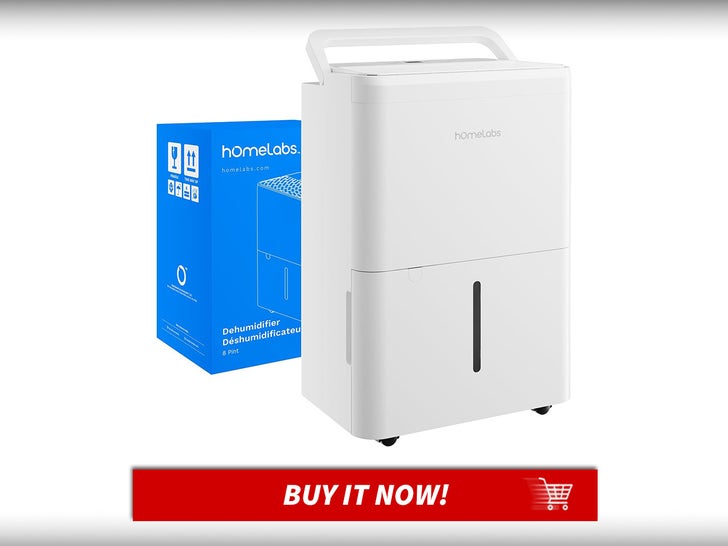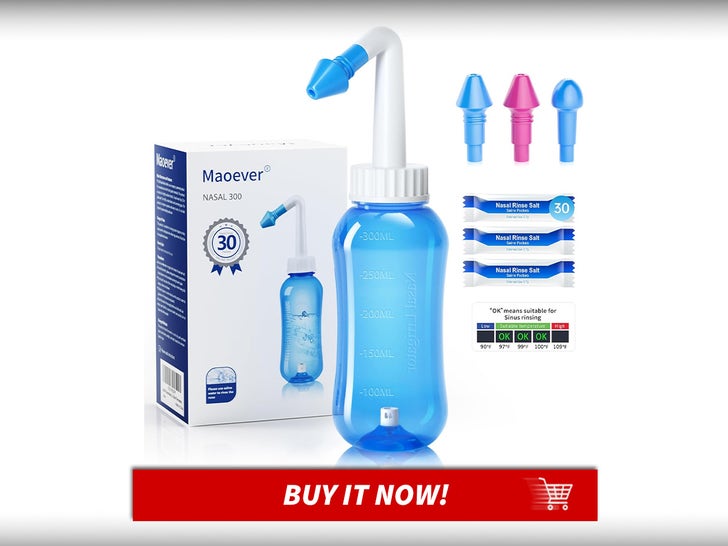Entertainment
Inside The Subtle ‘Star Wars’ Nod To The Late Carl Weathers

The late actor Carl Weathers is being honored in the new “Star Wars” movie, “The Mandalorian & Grogu.” After three seasons on Disney+, the titular Mandalorian, played by Pedro Pascal, is finally heading to the big screen. Although Weathers has sadly passed away, Lucasfilm honored the late actor by sneaking his name into The Mandalorian’s latest adventure.
Article continues below advertisement
Inside Carl Weathers’ Role In The ‘Star Wars’ Show ‘The Mandalorian’
In the first few seasons of “The Mandalorian,” which are currently available to stream on Disney+, Carl Weathers plays the role of Greef Karga. The character became an agent of the Bounty Hunters’ Guild and Guild Master of the Nevarro Hunters following the collapse of the Galactic Empire. He later became the High Magistrate of Nevarro and became someone the Mandalorian could trust.
However, that wasn’t Weathers’ only contribution to a galaxy far, far away. He also directed two episodes of the show. He directed “Chapter 12: The Siege” (Season 2, Episode 4) and “Chapter 20: The Foundling” (Season 3, Episode 4). Fans loved his character, but also praised the work that he did behind the camera.
Article continues below advertisement
Carl Weathers’ Name Appears In ‘The Mandalorian & Grogu’
“When we finally had the meeting about [#TheMandalorian], you walk into this conference room and all of this [concept] art is on the walls… And it’s all magnificent. It’s some of the most beautiful artwork you could ever see.” – Carl Weathers (Greef Carga) #StarWars pic.twitter.com/e0Sv7vq7Zf
— Phil Szostak (@PhilSzostak) October 24, 2019
Eagle-eyed fans who watched the trailer that dropped on February 17 noticed a nod to Carl Weathers when a creature smashes through a door that is marked with the name “WEATHERS APOLLO” written across the top.
“Weathers” is clearly a reference to the late actor, while the name “Apollo” is clearly a nod to one of his best-known roles. Weathers portrayed Apollo Creed in the first four “Rocky” films, from 1976 to 1985. Although he began as the primary antagonist to Rocky Balboa, he eventually became Rocky’s close friend and mentor.
Article continues below advertisement
Carl Weathers Passed Away In 2024
RIP Carl Weathers
Greef Carga was a character I loved in this new Star Wars story. Your acting and directing was a treasure. Glad me and my son got to watch you on screen. pic.twitter.com/QZE30cga90
— Elderpug (@Elderpug27) February 2, 2024
According to a death certificate obtained exclusively by The Blast, Weathers passed away on February 2 at 12:18 AM at 76 years old. His death certificate listed “atherosclerotic cardiovascular disease” as his official cause of death.
His family confirmed the news in a statement, saying, “He died peacefully in his sleep on Thursday, February 1st, 2024. We are deeply saddened to announce the passing of Carl Weathers.”
They praised him as an “exceptional human being who lived an extraordinary life. Through his contributions to film, television, the arts, and sports, he has left an indelible mark and is recognized worldwide and across generations. He was a beloved brother, father, grandfather, partner, and friend.”
Article continues below advertisement
Martin Scorsese Voices Ardennian Shopkeeper In ‘The Mandalorian and Grogu’

In addition to Weathers, acclaimed director Martin Scorsese will also appear in a galaxy far, far away. Polygon confirmed that the Ardennian shopkeeper seen at the beginning of the trailer is voiced by none other than Martin Scorsese.
The film is also bringing some serious star power with “Alien” actress Sigourney Weaver, playing Ward, a colonel and leader of the New Republic’s Adelphi Rangers who previously served as a pilot for the Rebel Alliance. “The Bear” star Jeremy Allen White is also voicing Rotta the Hutt, the son of deceased crime lord Jabba the Hutt.
Article continues below advertisement
Watch The Trailer Below
“This trailer makes it feel more like a movie and not just an episode of the show,” one fan commented.
“This is the way you do a real trailer,” another user agreed.
“Hope there’s a longer version of the Star Wars theme music at the beginning of the trailer on the soundtrack,” a third fan chimed in. “I love it!”
Others expressed shock to hear Scorsese’s voice in the trailer, with one fan writing, “Martin Scorsese in Star Wars wasn’t on my 2026 Bingo card, but I’m happy.”
“The Mandalorian & Grogu” hits theaters on May 22, 2026. Seasons 1-3 of “The Mandalorian” are currently available to stream on Disney+.
Entertainment
Lil Poppa Dead: ‘Love and War’ Rapper Dies at Age 25
Rapper Lil Poppa is dead at age 25.
The Fulton County Medical Examiner’s Office in Georgia confirmed in a Wednesday, February 18, statement to News4JAX that the musician was pronounced dead earlier that morning.
A cause of death has not been revealed, but is currently under investigation, the medical examiner told the outlet. .
Great Day Records CEO Caroline “Baroline” Diaz, who worked with Lil Poppa in the early stages of his career, took to social media on Wednesday to pay homage to the late rapper.
“My little brother is gone,” Diaz wrote via X on Wednesday. “Poppa I love you so much. I am so broken. One of the first artists I had at Interscope. A&R’ed 4 of his projects. I’m so sad right now.”
Several of Lil Poppa’s fans also reacted to the news, with one writing, “Poppa tell me it ain’t true.” Another replied, “You ain’t leave me like this 😔 ain’t NO WAY.”
Us Weekly has reached out to Lil Poppa’s representatives and the Fulton County Medical Examiner’s Office for comment.
Lil Poppa was best known for his songs “Love & War,” “Mind Over Matter” and “HAPPY TEARS.” The musician started rapping at age 7 in his hometown of Jacksonville, Florida. In 2018, he wrote the track “Purple Hearts,” inspired from his real-life experience surviving a drive-by shooting. The track ended up going viral. That same year, Lil Poppa released his debut album, Under Investigation.
Following the success of “Purple Hearts,” Lil Poppa signed a record deal with Interscope Records. He was later signed to Yo Gotti’s Collective Music Group (CMG) in 2022. He went on to release several more records including Blessed, I Guess, Half Man Half Vamp, Hold That Thought and Almost Normal Again.
Lil Poppa previously expressed his gratitude for his fans as they connected with his music over the years.
“A lot of people tell me I got them through their toughest times,” he said in a 2021 interview with Audiomack. “People say I got them through certain situations, or I stopped them from doing this or doing that. That means a lot.”
Lil Poppa continued, “That makes me realize I got the power to change someone’s outlook on a certain situation. So I need to be mature enough to handle my own situations in a mature way.”
He also opened up about why he wasn’t afraid to get vulnerable on his tracks.
“We go through so much on a daily basis. So we might feel like we’re at our worst, but we don’t even realize how much of a blessing some situations are,” the singer reflected. “Not everyone believes in the idea that everything happens for a reason. But even when we’re feeling like we’re the most cursed at times, we really can’t complain. Ain’t nothing to complain about, because it could be worse.”
Earlier this month, Lil Poppa released his new track “Out Of Town Bae.” He dropped the official music video on Friday, February 13.
“Out Of Town Bae Official Video out now❤️🔥,” he shared alongside a snippet from the video via Instagram.
Lil Poppa spent the last year on tour, and had a Birthday Bash concert scheduled next month in New Orleans.
“This Year I’m Having My Birthday Bash Concert in New Orleans at @thefillmorenola,” he wrote via Instagram in January. “Come Celebrate With Me. Tickets On Sale Now! Link in bio❤️🔥.”
Entertainment
Allergy Season Must-Haves on Amazon

Stop Sneezing 🤧
Fight Back!!!
No More Spring Allergies
Published
TMZ may collect a share of sales or other compensation from links on this page.
If you know springtime allergies are about to kick your ass … then you might as well get prepared.
With allergy season quickly approaching, avoid the sneezing, congestion and puffy eyes with the help of these sinus-saving essentials that’ll give you back your ability to breathe like a normal person.
From air purifiers to HEPA vacuums, you’ll have all the tools you need to fight back against pollen, dust and dander.
Levoit Core 300-P Air Purifier
Breathe freely at home with this Levoit Core 300-P Air Purifier. You can say goodbye to dust, smoke particles, pollen, and pet dander thanks to the device’s three-stage filtration system.
Plus, it utilizes VortexAir Technology to increase the air purifier’s power and efficiency, distributing more clean air throughout your room. Its compact size makes it a great fit for small spaces, like your office desk, and is a perfect to have in every room in the house.
hOmeLabs Dehumidifier
If you know allergy season is about to hit you hard, it may be time to consider a hOmeLabs Dehumidifier. Get ahead of the game and use this device to eliminate the dampness from the air you breathe everyday.
It can prevent the buildup of mold, mildew and dust mites, easing your allergy symptoms. And with its compact size and whisper-quiet sound, you’ll hardly know it’s there.
Eliminate all that dust, dirt and pet hair that’s accumulated in your carpet with the Shark Navigator Lift-Away.
It’s designed with powerful suction for deep cleaning and equipped with a completely sealed HEPA filter, meaning it captures and traps 99.9% of dust and allergens right inside the vacuum. And with an extra large dust cup you’ll be able to clean up any mess that comes your way.
Allergy season means making sure you have a Neti Pot Sinus Rinse on hand. This gentle and beginner-friendly device is designed with an innovative non-squeeze valve system, ensuring a controlled and steady flow based on air pressure.
It’s crafted to flush out mucus, allergens, and debris from the nasal passages, so you can breathe easy even on your worst allergy days.
Bissell Crosswave Turbo Hard Floor and Area Rug Wet Dry Vac
Unlock a new level of clean with the Bissell Crosswave Turbo Hard Floor and Area Rug Wet Dry Vac. During allergy season, it’s more important than ever to keep your floors clean and this multi-surface cleaner both vacuums and washes your floors simultaneously. You can move effortlessly from tiles to rugs as it tackles tough and sticky messes with ease …meaning you can forget all those time-consuming cleaning routines.
Sign up for Amazon Prime to get the best deals!
All prices subject to change.
Entertainment
Jelly Roll Breaks Silence On Digesting His Wife’s Memoir

For Jelly Roll, the truth is not an easy pill to swallow.
The country singer shared some insights he got from reading his wife’s new piping hot memoir and how her brave stories reminded him of their journey together, which has not been a completely smooth ride.
Jelly Roll and Bunnie XO got hitched in 2016, after a year of dating, and have worked their way through several storms so far, including an infidelity episode two years into their marriage.
Article continues below advertisement
Jelly Roll Remains Proud Of His Wife For Telling Her Truth

The 41-year-old caught up with PEOPLE on Tuesday, February 17, where he admitted that it was quite a rollercoaster to go through the pages of “Stripped Down: Unfiltered and Unapologetic,” hismemoir.
Jelly Roll stated that the stories in the book reminded him of such a pivotal period in their lives as a married duo. In the country singer’s words:
“It was rough at times just for me to read it. You know what I mean? We went through a lot of pain and had to go through it together, but reading the whole book and seeing where it ended at is really touching.”
Article continues below advertisement
The singer then showered his partner with tons of praise for making vulnerability so intriguing to read. He stated that Bunnie XO has carved a niche for herself when it comes to talking about everything so fearlessly, be it domestic assault, sexual assault, and other sensitive topics.
Article continues below advertisement
Bunnie XO Was Never In Doubt About Documenting Her Journey

The memoir captured Bunnie XO’s grass-to-grace stories while reflecting on the heartbreaks, healing, triumphs, and trauma in her life’s journey. On the book’s cover, the singer’s wife stayed right on theme by appearing topless while a pair of light-washed denim stayed on her lower part, letting her tattoos take center stage.
The media personality justified her reason for taking such a deep plunge into her story, stating that she is an open book and that telling all her business came as a second nature this time around.
She added that it was very seamless for her to pour her heart into the chapters and write about her life, her perspective, and the grit that continues to carry her through life.
Article continues below advertisement
Bunnie XO tagged her memoir as existing in her truest, rawest form with no desire to coat the truth from her readers, further helping them to see how she lives her life “raw, unfiltered and in my naked truth.”
Article continues below advertisement
Jelly Roll’s Wife Deep Dived Into Their Interesting Ideologies About Marriage

As shared by PEOPLE, the author addressed an important part of her marriage to the Grammy winner, which took form when she discovered that he was having an affair two years after they got married.
Bunnie XO confessed that they often invited other women into bed with them, and it did not pose a problem in the marriage, as she felt it was the best way to prevent cheating on Jelly Roll’s part.
She clarified that they had both shunned the idea of monogamy before they got married, and while they are not in an open marriage, they would not turn away a willing third wheeler in the bedroom.
Bunnie XO continued that her husband also gave her the freedom to sleep with other men, and so she initially took it as proof that Jelly Roll never loved her.
“We both live by the motto that we aren’t each other’s possessions and consider our relationship to be free, not open,” Bunnie XO explained, noting that it meant openness in the sexual conduct with each other, too.
Article continues below advertisement
How Did The Author Handle Her Husband’s Infidelity?

In the memoir, The Blast shared that Bunnie XO revealed that she began growing suspicions about Jelly cheating two years into their marriage, although he would always deny it.
The podcaster added that Jelly even moved out of their Nashville home after an argument and also became very upset when she showed up at one of their concerts uninvited.
It was upon her arrival that she discovered he had a former fling waiting for him in a hotel down the street. A close family friend also confirmed the situation to be true, leading Bunnie XO into a dangerous spiral where she considered ending it all.
She revealed that, from grabbing a bottle of pills in a bid to end it all before having a rethink about the situation, discovering Jelly’s infidelity hurt her in ways she did not expect. The author ultimately moved out of their home to Las Vegas until Jelly decided to make a move toward reconciliation.
Article continues below advertisement
Jelly Roll’s Controversial Grammy Speech Unearthed An Old Viral Video

When the singer stepped on the Grammy stage to proclaim his faith and belief, he sparked a discourse on social media, analyzing just how much of a Christian he has proven to be in the past. Jelly’s old video, where he lashed out at a teen and threatened to beat him for not attending to him instantly, made its way back online.
The singer appeared very displeased in the 2022 video where he noted that he had taken his aged mom to a shoe store and a young store attendant refused to help the 71-year-old out, even after the store manager’s instruction.
He recalled watching the interaction with rage building up inside him at the attendant’s lack of consideration for his mother despite the manager’s efforts. Jelly continued that he, however, did not let it slide, and he addressed the young man immediately after he led the mother out of the store.
He noted that he was mad at the staff in the establishment alongside the manager, who tried to de-escalate the situation, because he felt that if they had properly trained their staff on etiquette, they would not be so rude to his mother.
Entertainment
Gabriel Basso’s Netflix Spy Thriller Officially Delivers Its Best Storytelling Yet

When Shawn Ryan’s The Night Agent premiered on Netflix in 2023, it took the streaming world by surprise. What initially looked like a solid but familiar political thriller quickly became one of the platform’s most-watched series of all time, tapping into a craving for high-stakes, old-school espionage storytelling that felt modern and compelling enough to hook viewers instantly. Season 1 worked because it combined high-octane action with sharp political intrigue while introducing its audience to the high-pressure world of Night Action, all anchored by Gabriel Basso’s compelling and grounded performance as Peter Sutherland.
Season 2 expanded that world significantly, pulling Peter out of the White House and sending him across the globe while introducing new characters, international threats, and a more tangled political conspiracy. While there were certainly solid moments in Season 2, it sometimes felt overpacked, juggling so many moving pieces that the plot grew convoluted and the emotional throughline occasionally got lost. With its return, however, The Night Agent returns to its roots, delivering a tighter, more focused season that feels completely sure of itself — and easily the strongest the series has produced so far.
What Is ‘The Night Agent’ Season 3 About?
Off the heels of Season 2, Peter is still operating as a double agent, waiting for a call from intelligence broker Jacob Monroe (Louis Herthum), when he takes on what initially appears to be a straightforward mission: track down FinCEN employee Jay Batra (Suraj Sharma), a man accused of murdering his boss after uncovering sensitive government intel. But when Peter locates Jay in Istanbul, it quickly becomes clear that nothing about this case is simple. What begins as a manhunt spirals into a sprawling investigation involving dark money, political influence, and paid assassins determined to eliminate anyone who gets too close. Teaming up with relentless journalist Isabel De Leon (Genesis Rodriguez), Peter finds himself chasing a conspiracy that turns out to hit much closer to home.
Meanwhile, back in Washington, Season 1 fan favorite Chelsea Arrington (Fola Evans-Akingbola) is once again stationed inside the White House, now serving in the Secret Service detail for President Richard Hagen (Ward Horton) and First Lady Jenny Hagen (Jennifer Morrison). It’s Chelsea who first senses that something isn’t adding up, and her instincts begin to point toward tensions and secrets within the administration that don’t align with the public image being projected. With Hagen’s presidency already shadowed by the election manipulation revealed in Season 2, it’s easy to assume corruption will flow from the usual places. But Season 3 cleverly subverts expectations, and as Peter’s investigation and Chelsea’s concerns begin to converge, The Night Agent delivers some of its most satisfying storytelling yet.
Rose’s Absence Makes Room for ‘The Night Agent’s Strongest Ensemble Yet in Season 3
Going into Season 3, one of the biggest talking points was the absence of Luciane Buchanan‘s Rose. While she was central to Season 1, by the end of Season 2, it felt like the right creative decision, and that’s not a knock on Buchanan’s performance. What bonded Peter and Rose was trauma and survival, not a sustainable future, and Season 2 often struggled to justify keeping her in Peter’s increasingly dangerous orbit. Rather than forcing that relationship to continue, Season 3 lets it rest while still keeping Rose as Peter’s moral compass, ensuring her impact on him isn’t cheapened by her absence.
This shake-up in the cast also makes room for a stronger supporting ensemble. It’s genuinely thrilling to see Fola Evans-Akingbola reprise her role as Chelsea Arrington after only a brief appearance last season. Her return adds emotional grounding and a shared history with Peter that feels earned, and Evans-Akingbola continues to prove she’s one of the show’s most reliable presences while, frankly, being a total badass this season. Jennifer Morrison brings complexity to First Lady Jenny Hagen, playing her as both supportive spouse and quietly ambitious political force. Stephen Moyer is deeply unsettling as “The Father,” a contract killer who balances tenderness toward his son with chilling ruthlessness. David Lyons, as Peter’s new Night Action partner, Adam, injects volatility and occasional levity, keeping both Peter and the audience unsure of where his allegiances truly lie.
The standout addition to the show’s cast in Season 3 is Genesis Rodriguez as journalist Isabel De Leon. She’s sharp, relentless, and emotionally layered, with a backstory that unfolds naturally over the course of the season. Rodriguez is magnetic on screen, and her dynamic with Gabriel Basso crackles. Isabel is the kind of reporter who prioritizes justice and truth, even when it puts her directly in harm’s way. Her instinct for transparency, which collides with Peter’s instinct for secrecy, creates a constant, electric tension that fuels some of the season’s most compelling moments.

‘The Night Agent’ Season 4 Just Got a Game-Changing Update Ahead of Season 3
The series stars Gabriel Basso.
‘The Night Agent’ Season 3 Showcases Gabriel Basso at His Best
The Night Agent Season 3 firmly establishes Gabriel Basso as the show’s greatest asset. Back in Season 1, Basso spoke about the importance of doing his own stunts, and that commitment pays off in a major way here. The action is expertly balanced and always feels earned, culminating in a standout sequence that, without giving too much away, features a spectacular car chase that ends in an underwater fistfight. That moment, along with several others, ranks among the most impressive action set pieces on television in a while.
What truly elevates the show’s action, though, is how vulnerable Season 3 allows Peter to be. It calls to mind Daniel Craig’s Bond in Casino Royale or Tom Cruise’s Ethan Hunt in recent Mission: Impossible installments, where heroes known for their skill are allowed to get genuinely beaten down. Shawn Ryan and his writers aren’t afraid to let Peter take real punishment this season. He gets hurt. A lot. He relies on allies. He barely escapes situations that feel truly lethal. That vulnerability allows Basso to expand his range, and we see him at his best, particularly in scenes opposite Stephen Moyer, where Peter feels more exposed than ever. Even with a strong ensemble around him, it’s Basso who ultimately carries the weight of the show.
With The Night Agent Season 3, Ryan and his creative team deliver a thriller that feels both entertaining and purposeful. It’s a far more disciplined approach than Season 2, and it clearly lays the groundwork for an even bigger fourth season. While a formal renewal hasn’t been ordered, the writers are already at work, with plans to film at least part of the next chapter in Los Angeles. By tightening its storytelling, deepening its characters, and delivering deliberate, hard-hitting action sequences, The Night Agent has officially delivered its strongest season yet.
The Night Agent Season 3 premieres February 19, with all 10 episodes dropping on Netflix.

- Release Date
-
March 23, 2023
- Network
-
Netflix
- Directors
-
Adam Arkin, Guy Ferland, Millicent Shelton, Ramaa Mosley
- Writers
-
Seth Fisher, Munis Rashid, Corey Deshon
- The show returns to its Season 1 roots, delivering a tight and cohesive plot.
- It’s great having Fola Evans-Akingbola back as a series regular.
- Gabriel Basso delivers his strongest work, including the most intense action scenes of the series.
- Some secondary subplots could’ve used a bit more breathing room and stronger conclusions.
Entertainment
Kid Rock Is Selling $5K Tour Tickets After Turning Point USA Show
Kid Rock’s upcoming Freedom 250 Tour includes first-class ticket options for $5,000.
According to Ticketmaster, the seats in the first four rows at each venue are referred to as “first-class seats.” A front row ticket to see Kid Rock, 55, on his upcoming tour costs $5,000 while the second row costs $4,000. The third row is for sale at $2,000 and the fourth row is listed for $1,000. There are no additional perks for “first-class seats” listed on the site.
Anything past the fourth row is labeled as a “standard ticket” which can range from $50 to $500.
Kid Rock will be joined by special guests Jon Pardi, Parker McCollum, Brantley Gilbert, Big & Rich and The Dirty Roses.
The Freedom 250 kicks off on Friday, May 1, in Dallas. Kid Rock will make stops in Raleigh, Charlotte, St. Louis, Tampa and more locations before wrapping up on June 20 in Burgetttown Pennsylvania.
Earlier this month, Kid Rock announced he was hitting the road.
“Get ready to rock on Kid Rock’s Freedom 250 Tour – The Road To Nashville with very special guests on select dates!” the country singer wrote via Instagram in February. “Tickets on sale Friday, Feb 13th @ 10AM local. 🔥.”
The singer’s tour announcement came days before he took the stage for the Turning Point USA All-American Halftime Show, an alternative program to Bad Bunny’s Halftime Show during Super Bowl LX. In addition to Kid Rock, the Turning Point concert featured Gilbert, 41, Lee Brice and Gabby Barrett.
Ahead of the show, Kid Rock shared his excitement for the chance to compete against the NFL during the biggest game of the year.
“We plan to play great songs for folks who love America,” Kid Rock said in a statement. “We’re approaching this show like David and Goliath. Competing with the pro football machine and a global pop superstar is almost impossible … or is it?”
The Turning Point concert, which also featured a tribute to late founder Charlie Kirk, reportedly averaged 20 million views across social platforms. Meanwhile, Bad Bunny’s halftime show averaged 128.2 million viewers. His performance was the fourth-most halftime show viewers in history, behind Kendrick Lamar in 2025, Michael Jackson in 1993 and Usher in 2024.
After Kid Rock took the stage on Super Bowl Sunday, the musician was accused of lip-syncing during his performance of “Bawitdaba.” Kid Rock denied the allegations.
“My DJ, who actually raps that song with me, was not lit up,” he said during a February interview on Fox News’ The Ingraham Angle. “I’m jumping around the stage like a rabid monkey, rapping my song, and I’m taking breaths, and my DJ is filling in the other parts of it.”
Kid Rock also admitted that the Turning Point concert, which was livestreamed to fans, was pretaped.
“I even told them when I saw the rough cut, I was like, ‘You guys got to work on that sync. It’s off,’” he continued. “So it was just a syncing issue that they had, and I know they tried to get it right. It was very difficult.”
Entertainment
Nancy Guthrie Reward Doubles to $202,500 After Anonymous Donation

The reward has doubled as authorities intensify their search for Savannah Guthrie’s 84-year-old mom, Nancy Guthrie, 18 days after she was first reported missing.
Us Weekly has learned that 88-CRIME received an anonymous $100,000 donation “allowing the program to increase the reward for this case to $102,500,” according to an update from Pima County Sheriff’s Office on Wednesday, February 18, which noted that dollar amount is in addition to the $100,000 being offered from the FBI.
This brings the total amount to $202,500 to any information leading to Nancy’s location or the arrest and conviction of anyone involved in her disappearance.
The Federal Bureau of Investigation will not be handling the administration of any non-FBI rewards related to the case involving the Today show host’s mother, per the latest update.

This development comes after Milwaukee attorney Michael Hupy, president of Milwaukee Crime Stoppers, posted via Facebook on Monday, February 16, that he would be offering a $100,000 reward through Crime Stoppers for the arrest of the perpetrator. (It has not been confirmed that the anonymous donation to 88-CRIME was sent by Hupy, 79.)
“PCSD has received various requests for confirmation of various topics including working with Mexican authorities, utilizing polygraph tests, specific video surveillance requests, financial analysis, etc. PCSD is not confirming or releasing any details regarding those topics at this time,” the Pima County Sheriff’s Office told Us about their current efforts.
Meanwhile, investigators are currently analyzing biological evidence found at Nancy’s residence in Tucson, Arizona.
Nancy was last seen at her home after she was dropped off by family at 9:48 p.m. on January 31. Authorities believe she was “taken” while “asleep” sometime during the early morning hours of February 1.

In an aerial view, news broadcasters are stationed outside Nancy Guthrie’s residence on February 18, 2026. (Photo by Brandon Bell/Getty Images)
Pima County Sheriff Chris Nanos believes the Ozark Trail backpack worn by the unidentified suspect in newly released Nest doorbell camera footage was purchased at a Walmart.
“So we’re working with our Walmart managers all across the state to try to find out how many sales there were of that backpack in the last 20, 30 days, the last 60 days,” Nanos told NBC News. “And can we do something with that? Can we break it? Maybe we’ll find a credit card or a bank card. Maybe we’ll find a video of the guy walking in.”
The FBI described the suspect as a man that is 5-foot-9-inches to 5-foot-10-inches tall and of average build.
Nanos said they’re exploring all possible clues and leads, stating that it appears the suspect filmed on Nancy’s porch appeared to be wearing a ring underneath the pair of black gloves. As of Wednesday, there have been no DNA matches for the single black glove found one and a half miles away from Nancy’s residence. DNA profiles are currently under lab analysis.
As the search for Nancy continues, Savannah, 54, issued a new video via Instagram on Sunday, February 15, pleading for the safe return of her mother, stating, “It is never too late to do the right thing.”
“We still have hope, and we still believe,” she added. “And I wanted to say to whoever has her or knows where she is that it’s never too late, and you’re not lost or alone. And it is never too late to do the right thing, and we are here, and we believe … in the essential goodness of every human being.”
Entertainment
Jelly Roll’s Wife Doubles Down On His Manhood

The podcaster has raved about her husband’s manhood size behind him and is not shying away from confirming it to his face, either, insisting that it is what he would have loved to hear.
Jelly Roll charted a new course for his life after a dramatic weight loss episode, a change he insists also reflects in his spiritual life through an improved bond with God.
Article continues below advertisement
Jelly Roll’s Wife Praises His Manhood But Reiterates Support For His Health Journey

The newly minted author explained to interviewers at the airport that she has zero regrets telling the world about Jelly’s p-nis size on “The Howard Stern Show” on Tuesday as she begins her memoir promo tour.
TMZ’s crew caught up with her after her appearance on Today, and she noted that her partner would have absolutely expected her to talk about it just because she is unapologetically herself. When asked if she had ever told him about his private part in person, Bunnie XO answered in the affirmative.
She was then asked for her opinion on Roll’s health journey and what it was like supporting him every step of the way. In her words: “I love that he is loving himself, there is nothing better than watching your man fall in love with himself.
Article continues below advertisement
The media personality was then asked if she missed any part of the old Jelly, to which she replied no, adding that she loved every part of her husband.
Article continues below advertisement
The Singer Credited Weight Loss For An Improved Sex Life
Jelly himself is not exactly shy with the words, just like his better half, and earlier in the year, he spilled some major bedroom secrets while speaking with Men’s Health.
As noted by The Blast, the media personality affirmed that after losing 275 pounds over the last five years, he has provided with a new burst of energy. “I have the sex drive of a 17-year-old again. I’m f-cking pouncing on my wife. We’re having daytime sex again. It’s f-cking awesome,” Jelly noted.
In a previous interview, the musician explained that weighing 500 pounds negatively affected their sex life, and they would always find themselves struggling with the perfect bedroom rhythm.
Article continues below advertisement
He finally decided to do something drastic about his weight as he could feel himself crushing under the impact of the several pounds on his health.
Article continues below advertisement
Jelly Roll Took Very Active Steps In Turning His Life Around
The country singer revealed on Joe Rogan’s podcast that turning 39 was all the sign he needed to begin the journey towards a healthier future. He recalled feeling like he already rigged the game by cheating death a couple of times, and he was left to deal with lots of heart issues.
He also revealed that at some point, his wife had to put two queen beds in their bedroom because he could not fit on one anymore. Jelly continued that simple tasks began to feel complicated to him, and it became embarrassing to see himself struggling.
The first point of figuring it out for the singer began with him addressing the faulty lines in his diet and adding running to his fitness routine. In 2018, the Grammy winner described weighing 500 pounds as one of the most embarrassing moments of his life, which came in the way of his living his life to the fullest.
“I wanna sky dive, bungee jump, ride a bull, parasail, ride roller coasters, I want to LIVE a normal life and have a normal relationship with food,” the star shared at the time.
Article continues below advertisement
Weight Loss: The Recipe For Fatherhood
Jelly noted last month that several vital changes occurred in his life after shedding the pounds, one of which is an improved relationship with his kids. He raved about being a better father now because he even started coaching his son’s basketball team, something he could not do years ago.
“Dude, when you’re 550 lbs, you wonder if they have a seat big enough for you, you know what I mean? You definitely don’t think about trying to coach a team,” the singer noted.
Jelly has in the past credited his kids, Bailee Ann and Noah Buddy, with motivation to live a healthier life. The star usually brings his kids to his shows and spends time with them whenever he can.
The country singer and Bunnie, on the other hand, are also trying to expand their family, according to her admissions on a podcast. The singer’s wife noted that becoming parents at the end of the day is ultimately in God’s hands, and if that does not work out, adoption is another strong option for them.
Article continues below advertisement
Jelly Roll And Bunnie XO Hit The Green Lights Surrogacy

Speaking of becoming parents, Bunnie revealed in her new memoir that after a decade of being together while growing and healing, they finally feel ready to take the next step into the future by becoming parents.
Bunnie added that the past decade has been filled with them making smart financial and emotional decisions to secure themselves as they enter into a new phase with a nice surrogate. She shared that treatments will soon start regarding her IVF, and hopefully, they get twin babies out of the process.
Bunnie expressed that it has been a long time coming for them when it comes to their fertility journey, which dates back to 2019. The tests noted that her fallopian tubes were blocked, and they received no reassurance about a conception, even if she had surgery.
The timing coincided with a rough period in their marriage, forcing them to stop exploring treatment options.
Entertainment
New Easy-to-Binge 10-Episode Crime Thriller Steals ‘The Lincoln Lawyer’s Viewers on Netflix

Netflix has to have a hit legal drama at all times at this point. It’s almost as if the streamer offers the same audience a fresh adjacent fix: something paced for bingeing, built on case-of-the-week momentum, and easy to drop into without homework. That’s what’s happening right now with a newly surging 10-episode crime thriller starring Melissa Roxburgh, Nick Wechsler, Patrick Sabongui, Josh McKenzie, and Sara Garcia, and it’s sliding into the exact viewing lane that The Lincoln Lawyer has owned for a while.
The show’s hook is engineered for quick addiction. It’s a manhunt procedural with an escalation engine baked in: a small, specialized team is assembled after the country’s most dangerous killers escape from a prison that isn’t supposed to exist, turning each episode into a capture mission that feeds a larger conspiracy. That structure matters on Netflix because it creates “one more episode” gravity the same way courtroom dramas do — problem introduced, pressure applied, resolution delivered, and a breadcrumb dropped for the bigger season arc.
The show in question, titled The Hunting Party, has climbed to #2 on Netflix’s U.S. Top 10 TV list as of February 18, 2026, while The Lincoln Lawyer sits at #6 on the same daily chart — a clean picture of how the audience is being redistributed in real time. That rise tracks with what you’d expect from a newly activated catalog add: the title hits the list, gets surfaced harder, and then gains momentum as more viewers sample it. And it’s not just a Netflix-only story either: the series is also charting on Prime Video at the #4 spot in Turkey this week.
There’s a Practical Reason Why ‘The Hunting Party’ Is Trending
The Hunting Party, originally aired in January 2025, is now spiking because Netflix has made it newly accessible to viewers who didn’t watch it on NBC during its original run, which changes the viewing context. The other reason is that the show’s second installment recently started airing, so it’s currently being discussed more, too. Therefore, while a weekly network procedural can feel routine, a fully available Netflix season plays like a new binge drop, especially with a recognizable lead like Melissa Roxburgh anchoring the hook.
The new season, however, isn’t yet available to stream on Netflix and will only be available once the complete season has premiered. This is exactly how Netflix treated the lead of legal drama Suits, and it worked out well.
The Hunting Party Season 2 airs new episodes weekly. The first season is available to watch on Netflix. Stay tuned to Collider for more updates.

- Release Date
-
January 19, 2025
- Directors
-
Thor Freudenthal, Glen Winter, James Bamford, Nicole Rubio, Rod Hardy, Shana Stein, Blackhorse Lowe, Marcus Stokes, Kristin Windell
- Writers
-
David Loong, JJ Bailey, Jake Coburn, Keto Shimizu, Michael Jones-Morales, Paula Sabbaga, Rebecca Bellotto, Vinny Ferris
-

Melissa Roxburgh
Rebecca ‘Bex’ Henderson
-

Entertainment
FX’s ‘Love Story’ Misses the Mark With Its Depiction of This Hollywood Icon

Editor’s note: The below contains spoilers for Love Story Episodes 1-3.
Ryan Murphy is a producer linked to never-ending controversies courtesy of his ongoing Monster anthology series, but Love Story: John F. Kennedy Jr. & Carolyn Bessette represents a far more thoughtful approach to a ripped-from-the-headlines celebrity story. There have been many films and shows centered around the Kennedy family, but Love Story explores the passionate, tempestuous marriage between John F. Kennedy Jr. (Paul Anthony Kelly) and Carolyn Bessette (Sarah Pidgeon) before their tragic deaths in a 1999 plane crash. The Kennedys were involved with many powerful figures in both Washington, D.C. and Hollywood, and Love Story depicts the brief romance between JFK Jr. and the actress Daryl Hannah, portrayed in the show by Dree Hemingway.
Due to his family’s influence and political legacy, Kennedy was encouraged to pursue a career in service of his country and completed the bar exam in New York after two unsuccessful attempts. At the same time, Kennedy was also involved in lifestyle and popular culture institutions, and began dating Hannah in the late 1980s before they split up in 1994. Hemingway admitted that the actors were encouraged not to contact the subjects they portrayed, which has remained consistent on all the anthology shows that Murphy has produced except American Crime Story: Impeachment, in which Monica Lewinsky was involved. This may have been a noble attempt to ensure that the depiction of these figures was unbiased, but it’s more problematic when the series also invents plot elements that skew the way that events are perceived.
‘Love Story’ Doesn’t Accurately Depict JFK Jr.’s Relationship With Daryl Hannah
Love Story is only focused on a condensed period of time within Kennedy’s life, meaning that it only shows the end portion of his relationship with Hannah. Despite reports that they had been happily dating within the first few years of meeting, Love Story doesn’t explore any of the affection that Kennedy and Hannah had for each other, since the series begins when their relationship is already in a downward spiral. Even when ignoring the fact that Love Story only depicts Hannah in a negative light, implying she was completely oblivious to the media attention that Kennedy had inflicted upon him, the series doesn’t grant her the depth provided to other supporting characters like Calvin Klein (Alessandro Nivola).

Murphy should consider returning to the anthology series that brought him the most prestige.
Love Story‘s most glaring invention so far is the implied tension between Hannah and Kennedy’s mother, Jackie Onassis (Naomi Watts). There are conflicting reports about whether there was any friction between the two women, but Love Story assumes the worst by suggesting that Jackie’s objections prevented Kennedy from marrying Hannah. It’s also not a particularly even-sided conflict, as the series is far more sympathetic to Jackie, who is portrayed as a helpful and supportive maternal figure before her death in the third episode, “America’s Widow.”
‘Love Story’ Contributes to a Skewed Version of American History
Interpreting historical ambiguities may have been inevitable for Love Story, but the show’s characterization of Hannah is especially unfortunate given how over-the-top and obnoxious her portrayal is. In addition to implying that Hannah’s involvement with drug users caused stress within Kennedy’s life, the series also includes a strange moment in which she equates the death of her dog to the loss of Jackie. Beyond a larger unwillingness to contact Hannah, Love Story’s producers didn’t follow any accounts that were slightly sympathetic to her position; the show was inspired by the non-fiction novel Once Upon a Time by Elizabeth Beller and also draws from The Other Man, a memoir by Bessette’s former lover, Michael Berman (Michael Nathanson). Considering that Love Story is otherwise a very well-crafted drama show that is thoughtful in its approach to an unfortunate situation, Hannah’s highly negative portrayal feels more glaring in contrast.
Although Hannah has yet to make any public statements about the series, the real actress might not be able to change the narrative, given that Murphy has largely ignored criticisms from the subjects of his other shows. There’s no case for libel when the series states outright that some events are fictionalized, but given the frequent allusions to very specific events and dates, Love Story may give many viewers the impression that its version is mostly accurate. It’s worth noting that in the aftermath of the crash, Hannah did not show any ill will towards Kennedy or Bessette and has been praised in recent years for her advocacy on behalf of environmentalist groups. It’s a shame that her essence was reduced to a stereotype of an out-of-touch actress.
Entertainment
Jennifer Aniston’s New Man ‘Intimidated’ By Her Past Brad Pitt Romance

The actress is currently dating Hypnotist Jim Curtis, but reports claim he is “deeply intimidated” by her past high-profile relationship with Hollywood star Brad Pitt, whom she married in 2000, before their divorce five years later.
In recent years, the former lovers have seemingly rekindled a friendly relationship, with Brad Pitt even attending Jennifer Aniston’s 50th birthday celebration in 2019.
Article continues below advertisement
Why Jennifer Aniston’s New Man Is Seemingly ‘Intimidated’ By Brad Pitt

After hard launching their relationship last November, Aniston reminded the public of her blossoming romance with Curtis when she shared a sweet snapshot with the hypnotist visible in the background on Valentine’s Day.
However, despite the subtle but clear stamp of love, it appears that Curtis is still troubled by her past, particularly her former romance with Hollywood veteran Brad Pitt.
Pitt and Aniston were married for five years, and despite their 2005 split, their relationship still resonates within industry circles.
They have also seemingly remained amicable, as evidenced by Pitt’s appearance at Aniston’s 50th birthday celebration in 2019.
All of these have allegedly left Curtis feeling he is not up to par, especially given Pitt’s glittering Hollywood career.
Article continues below advertisement
“Jim is deeply intimidated,” one insider said, per a report. “Brad Pitt isn’t just an ex-husband. He’s a cultural icon — one of the sexiest men to ever live. That body alone became part of pop history.”
Article continues below advertisement
Jim Curtis Feels The ‘Brad-And-Jen Narrative’ Is A ‘Lot To Carry’

According to other sources who spoke to Rob Shuter’s #Shuterscoop, Curtis is aware that conversations about Brad Pitt and Aniston’s past relationship persist, even as his own relationship with the actress continues to flourish.
This has at times made things feel overwhelming for him, even though he is not actively trying to compete with Aniston’s past.
“The Brad-and-Jen narrative never really died,” said an insider. “It’s not that Jim thinks he’s competing — it’s that he’s stepping into something the public still romanticizes.”
“He’s confident, but he’s human. When your girlfriend’s former marriage is still treated like unfinished business by fans, that’s a lot to carry,” a second source echoed.
Article continues below advertisement
For her part, Aniston appears focused on the here and now, even as Hollywood continues to fixate on her past.
Article continues below advertisement
Jennifer AnistonAnd Jim Curtis Began Dating Last Year

Rumors that Aniston and Curtis were romantically involved surfaced in mid-2025 and were officially confirmed by US Weekly in July.
At the time, the outlet claimed that the duo “are being super private but have been spending a lot of time together.”
The claim was later confirmed by the Daily Mail, which also noted how excited Aniston’s friends were about the relationship.
“Jennifer is dating Jim and is very happy, but she’s still taking things slowly for now. Her friends have been buzzing with excitement over the new romance, and those who have met him think they are a perfect match,” a source shared.
“Jen feels very connected to Jim, as they have the same level of emotional intelligence, unlike some of her previous suitors,” they added.
That same month, People Magazine revealed that the duo was introduced by friends and that Aniston feels Curtis is “very different from anyone she’s dated before.”
Article continues below advertisement
The Couple Became Instagram Official In November 2025

Last November, Aniston took to Instagram to show off their romance by sharing a loved-up photo of the two of them to celebrate Curtis turning 50.
“Happy birthday, my love,” captioned the black-and-white photo, which marked her first public acknowledgement of her romance with Curtis. She also added the word “Cherished,” alongside a heart emoji.
At the time, Curtis reciprocated the show of love with pictures of them on his page. He added the caption, “If this is a dream, I don’t want to wake up.”
Jim Curtis Shared A Sweet Birthday Tribute To Jennifer Aniston
More recently, he gave back the same birthday energy with a tribute to Aniston when she turned 57 earlier in the month.
He shared a monochrome picture of himself with Aniston sharing an intimate kiss and another of them laughing intensely while posing for the camera aboard what appeared to be a yacht.
Curtis also added a “HBD my [heart],” captioned alongside a funky birthday song playing in the background.
-

 Video3 days ago
Video3 days agoBitcoin: We’re Entering The Most Dangerous Phase
-

 Tech4 days ago
Tech4 days agoLuxman Enters Its Second Century with the D-100 SACD Player and L-100 Integrated Amplifier
-

 Crypto World2 days ago
Crypto World2 days agoCan XRP Price Successfully Register a 33% Breakout Past $2?
-

 Sports2 days ago
Sports2 days agoGB's semi-final hopes hang by thread after loss to Switzerland
-

 Video6 days ago
Video6 days agoThe Final Warning: XRP Is Entering The Chaos Zone
-

 Tech2 days ago
Tech2 days agoThe Music Industry Enters Its Less-Is-More Era
-

 Business1 day ago
Business1 day agoInfosys Limited (INFY) Discusses Tech Transitions and the Unique Aspects of the AI Era Transcript
-

 Entertainment19 hours ago
Entertainment19 hours agoKunal Nayyar’s Secret Acts Of Kindness Sparks Online Discussion
-

 Video2 days ago
Video2 days agoFinancial Statement Analysis | Complete Chapter Revision in 10 Minutes | Class 12 Board exam 2026
-

 Crypto World5 days ago
Crypto World5 days agoBhutan’s Bitcoin sales enter third straight week with $6.7M BTC offload
-

 Tech24 hours ago
Tech24 hours agoRetro Rover: LT6502 Laptop Packs 8-Bit Power On The Go
-

 Sports4 hours ago
Sports4 hours agoClearing the boundary, crossing into history: J&K end 67-year wait, enter maiden Ranji Trophy final | Cricket News
-

 Entertainment11 hours ago
Entertainment11 hours agoDolores Catania Blasts Rob Rausch For Turning On ‘Housewives’ On ‘Traitors’
-

 NewsBeat4 days ago
NewsBeat4 days agoThe strange Cambridgeshire cemetery that forbade church rectors from entering
-

 Business7 days ago
Business7 days agoBarbeques Galore Enters Voluntary Administration
-

 Business1 day ago
Business1 day agoTesla avoids California suspension after ending ‘autopilot’ marketing
-

 Crypto World6 days ago
Crypto World6 days agoKalshi enters $9B sports insurance market with new brokerage deal
-

 Crypto World14 hours ago
Crypto World14 hours agoWLFI Crypto Surges Toward $0.12 as Whale Buys $2.75M Before Trump-Linked Forum
-

 Crypto World7 days ago
Crypto World7 days agoEthereum Price Struggles Below $2,000 Despite Entering Buy Zone
-

 NewsBeat4 days ago
NewsBeat4 days agoMan dies after entering floodwater during police pursuit



















